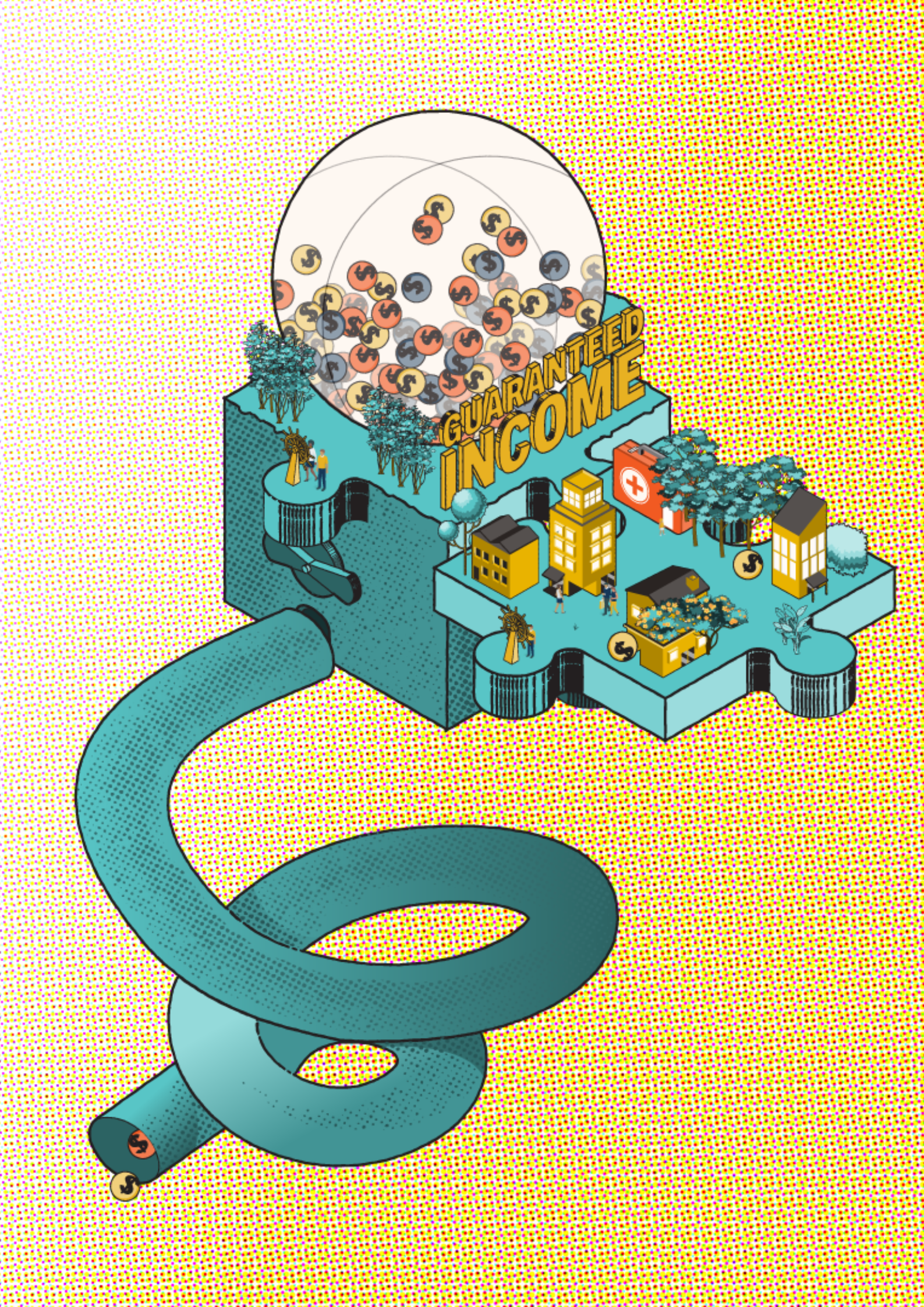Guaranteed Income
In the United States, the plight of poverty isn’t a result of the choices made by those who experience it. Instead, it’s a consequence of policy decisions and inaction by generations of policymakers. These choices have enabled corporations and the wealthy few to mold the economy in ways that serve their interests, perpetuating cycles of oppression, particularly for people of color. This has led to millions of Black, Indigenous, Latine, Arab, Middle Eastern, Asian, and Pacific Islander individuals living on the fringes of poverty, hindering their ability to amass wealth and fully engage in democracy. These systemic injustices aren’t accidental; they stem from white supremacy and racist policies that have historically withheld vital support from people of color languishing in poverty.
In the vision of a Liberation Economy, all individuals of color should possess an assured right to a livable income. This income not only covers basic needs but also shields against the threat of plunging into poverty. To actualize this vision, a transformative solution emerges: the implementation of a guaranteed income program by the federal government. This program entails recurring, unrestricted, and direct cash payments to those in need. A guaranteed income program stands as a potent tool for combating poverty among people of color. Evidence from the expansion of the child tax credit reveals that sizable targeted cash transfers can significantly benefit people of color, especially children, reducing child poverty rates by over 50%. Research confirms that unconditional guaranteed income can alleviate issues disproportionately impacting people of color, from mental health concerns to interactions with the criminal justice system.
Read Brief on Guaranteed Income







